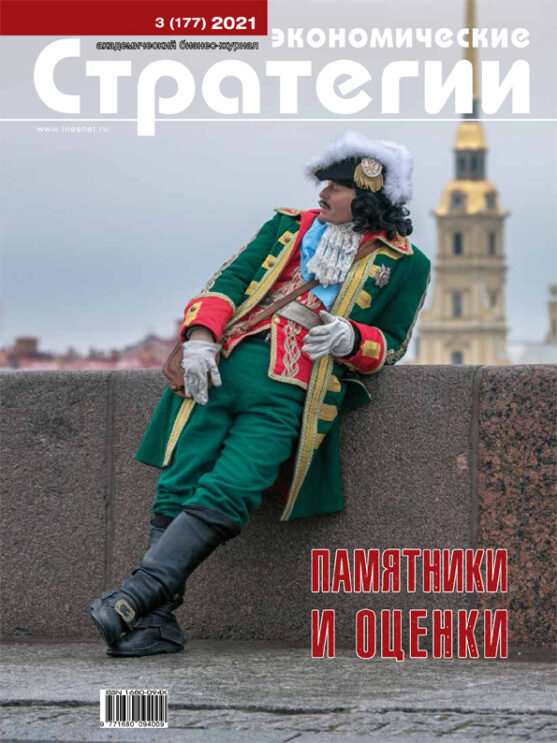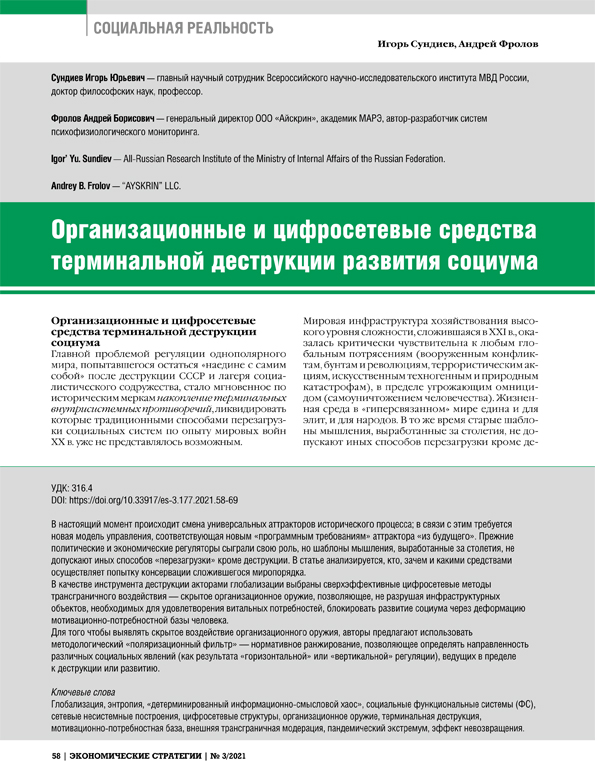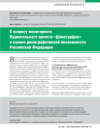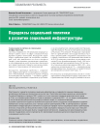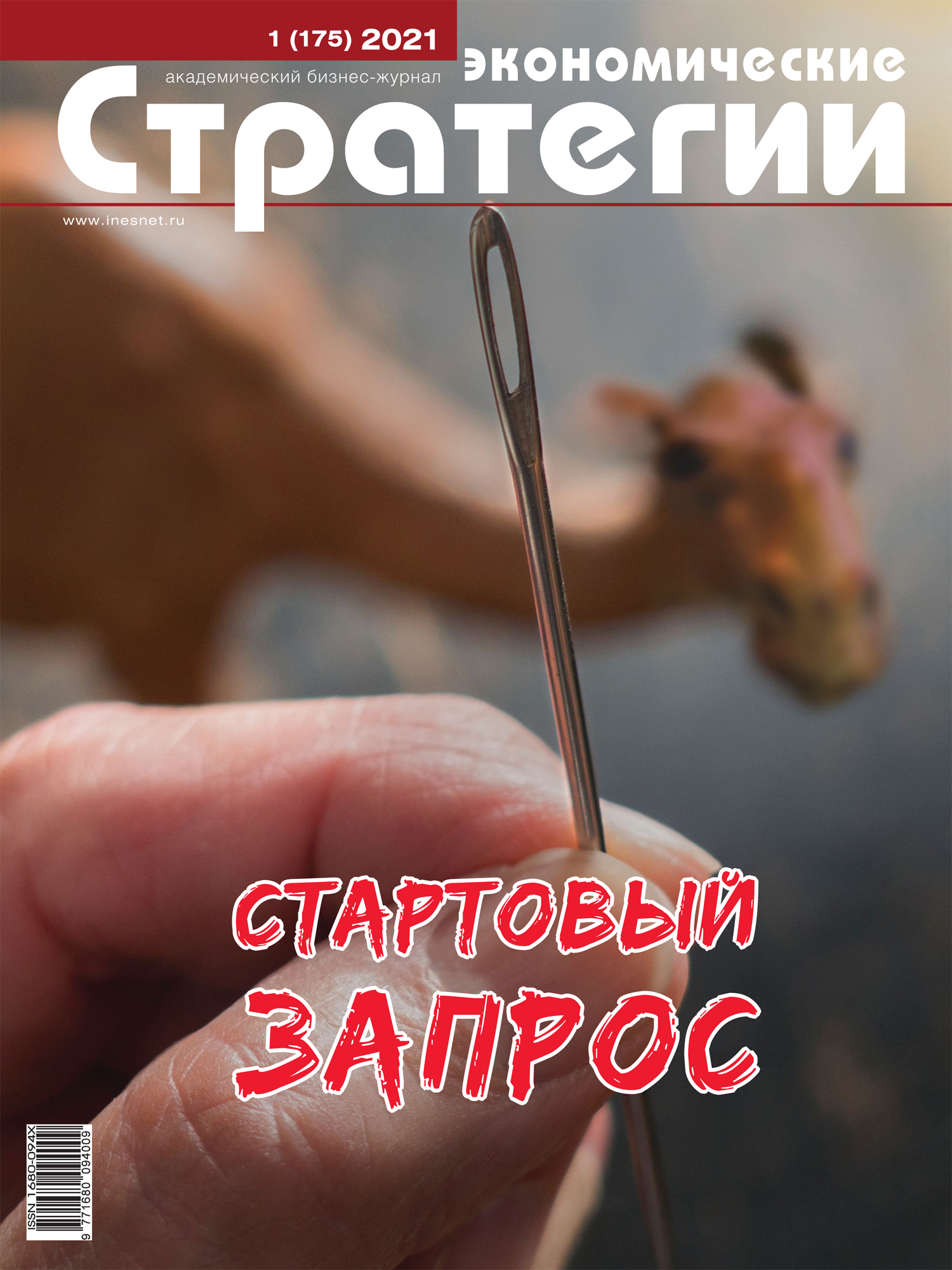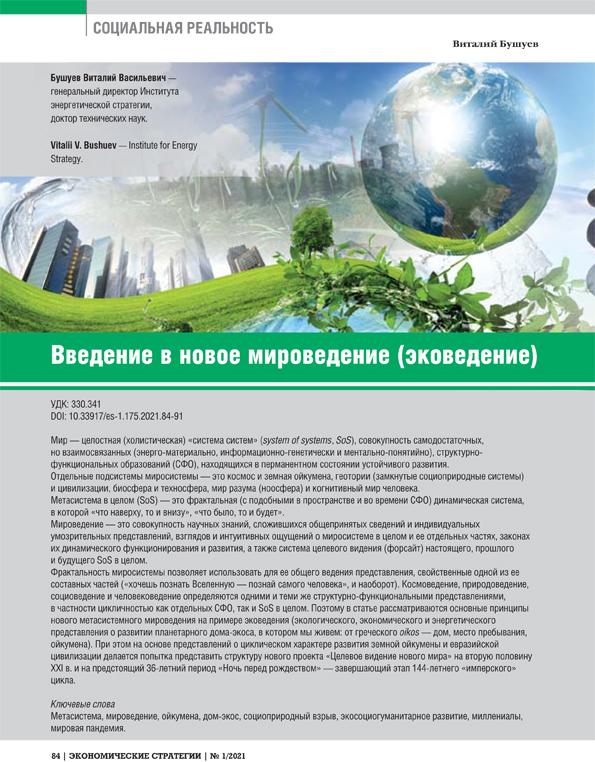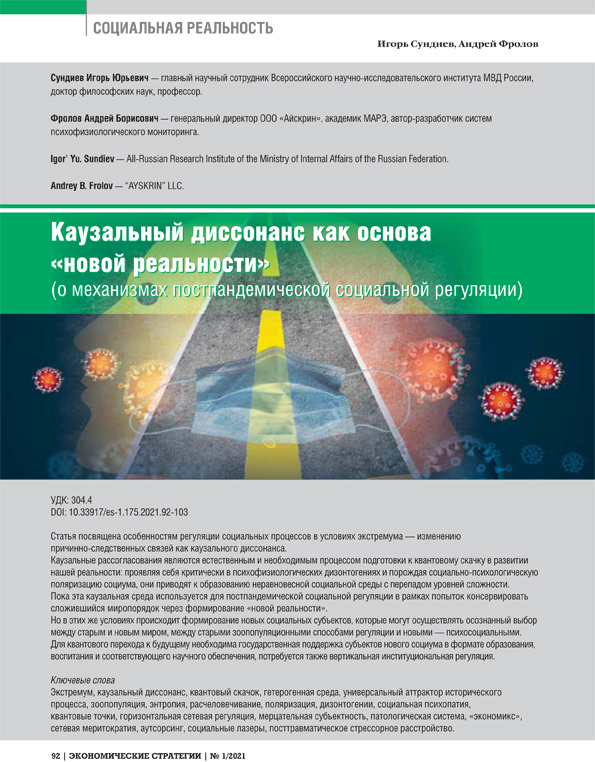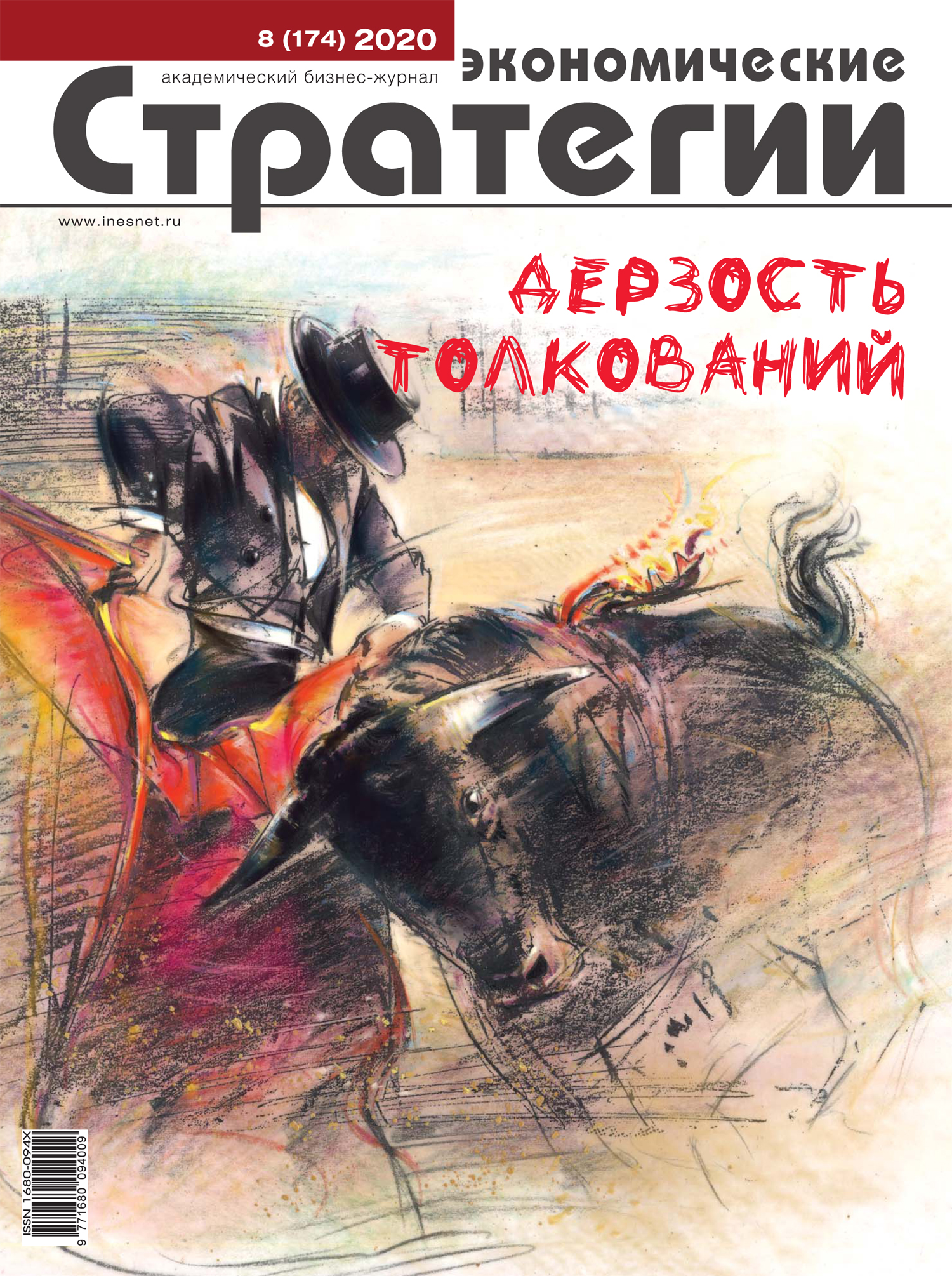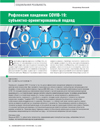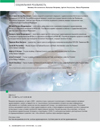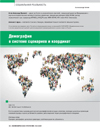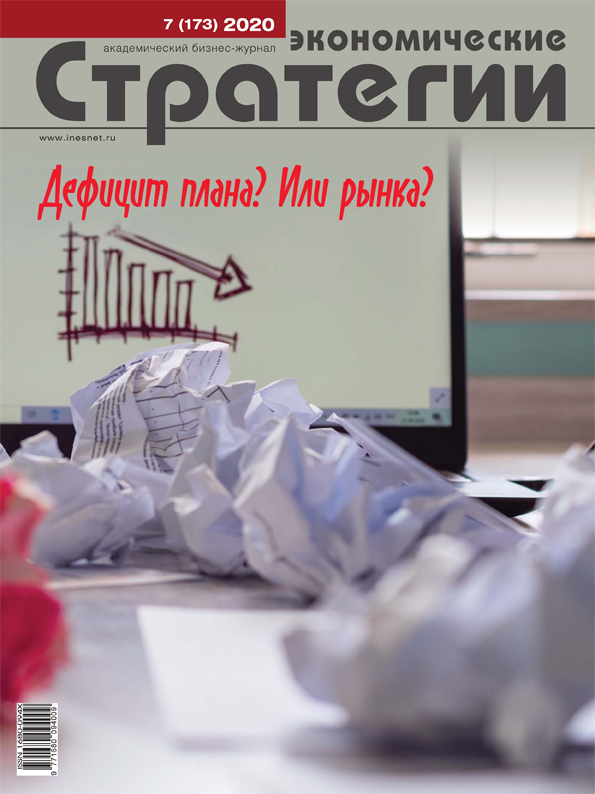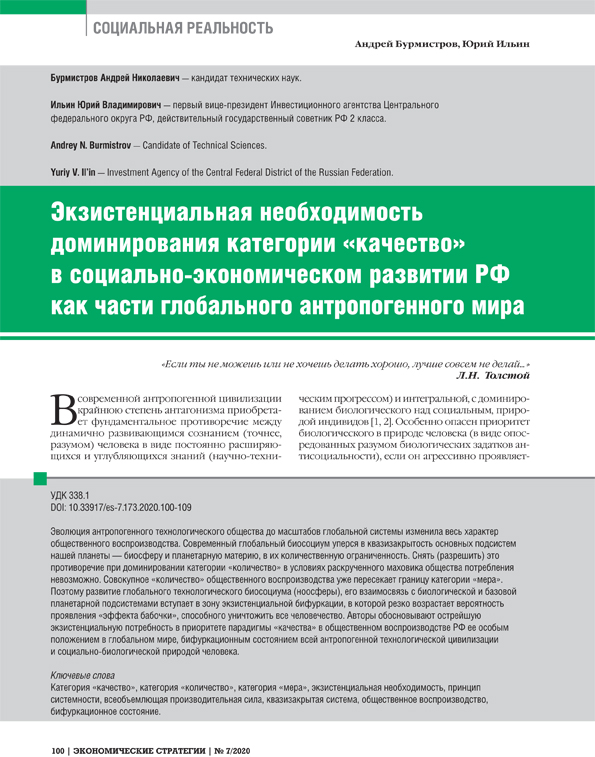Organizational and Digital Network Means of Terminal Destruction of Social Development
DOI: https://doi.org/10.33917/es-3.177.2021.58-69
At the moment, there is a change in the universal attractors of the historical process; in this regard, a new management model is required, corresponding to the new “program requirements” of the attractor “from the future”. The former political and economic regulators have fulfilled their role, but the patterns of thinking developed over the centuries do not allow for any other means of “reset” than destruction. The article analyzes who, why, and by what means attempts to preserve the existing world order. As a tool of destruction, the actors of globalization have chosen ultra-effective digital network methods of cross-border impact — a hidden organizational weapon that allows, without destroying the infrastructure facilities necessary to meet vital needs, to block the development of society through the deformation of the motivational and need base of a person.
In order to identify the hidden impact of organizational weapons, the authors propose to use a methodological “polarizing filter” — a normative ranking that allows us to determine the direction of various social phenomena as the results of “horizontal” or “vertical” regulation, leading to the limit of destruction or development.


